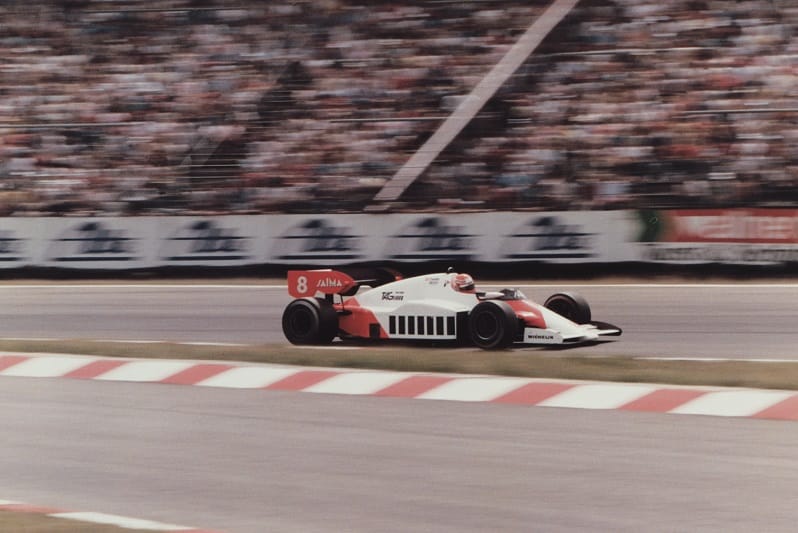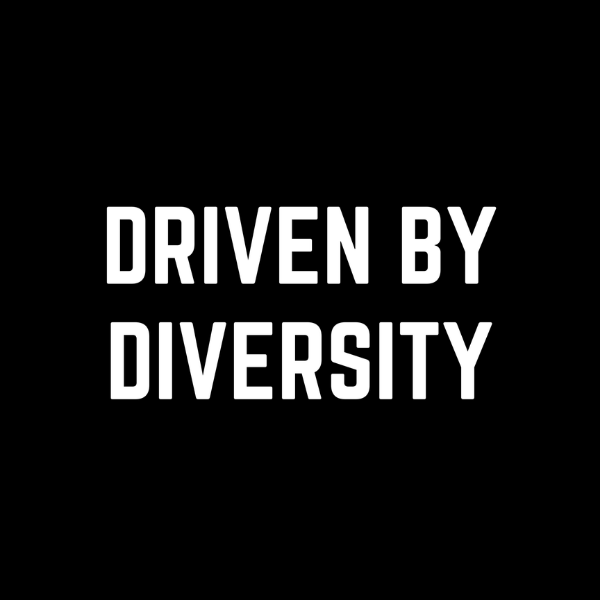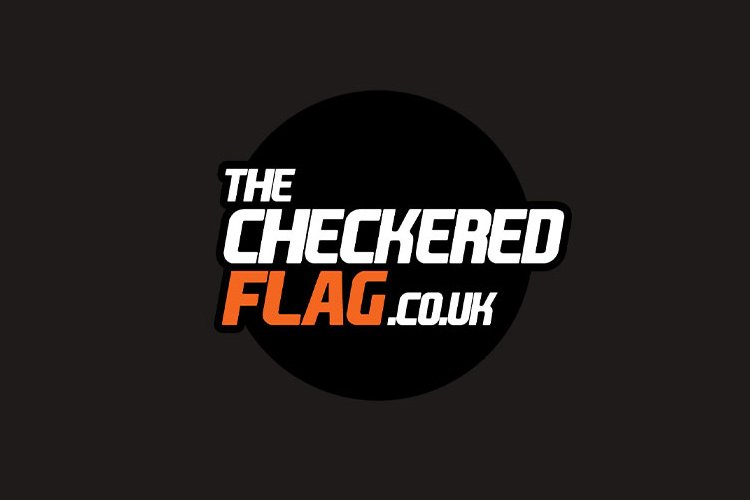Although Porsche is known primarily for its sports car racing, the manufacturer has appeared in multiple different race series through the years. From rallying to Formula One and IndyCar, the history of motor racing sees Porsche’s name appear in many places.
The rise of the 911 saw Porsche’s strength and presence in rallying grow. The variants of the marque’s car delivered some compelling contenders to the world of off-roading, and Porsche was not a brand to back away from a challenge. Throughout the 60s and 70s the Porsche 911 and its variants can be tracked with success through rallying’s rich history, but Porsche only entered the sport occasionally as a works team. Most of the success achieved by the brand was from their customer racing outfits.
1967 saw the start of Porsche’s rally success, with Sobieslaw Zasada taking a 912 to win the European Rally Championship for Group 1 series touring cars. Following on from this came Porsche’s consecutive hat-trick of wins at the Monte Carlo Rally from 1968-1970. Their most notable achievement in the rallying field, however, was in 1970 when they beat Alpine-Renault to win the predecessor of the World Rally Championship: the FIA International Championship for Manufacturers.
At the birth of the WRC in 1973, Porsche’s taste for success fell to the weigh side. They would withdraw from the WRC with no victories to their name as a works team, but with many podiums and more success coming from their privateer teams. Their first works WRC podium came in the inaugural year of the championship at the 1973 1,000 Lakes Rally, when Leo Kinnunen took the German brand to the third step of the podium.
Always the bridesmaid and never the bride in WRC, but in the national championship the Porsche 911 seemed unstoppable. Cathal Curley was one of the most notable Porsche 911 rally racers claiming the greatest run of International Rally wins ever claimed by the car. Four international victories were won by Curley in the 911 – three victories in 1974 with the final Rhd 911 2.7 Carrera RS Sport Porsche ever produced, and one at the 1975 Cork 20 with the then upgraded 911 3.0 Carrera RS. The most impressive factor of Curley’s international success was that the car being raced was mechanically standard; straight off the showroom floor.
The European Rally Championship saw the Porsche 911 take five titles, with their rallying successes continuing into the mid 80s. 1984 and 1986 brought Porsche Paris Dakar Rally victories, both won in the 911-derived Porsche 959 Group B supercar.
Rallying may not be a main focus of Porsche’s, and has not been since the late 70s, but even today variants of that original Porsche 911 are still winning in the off-road circus. Five times the Spanish Rally Championship has been won by Porsche between 2009-2015, and as recently as 2015 and 2017, Porsche were back on the top step winning the FIA R-GT Cup with Francois Delecour and Romain Dumas respectively with a 911 GT3.

Ferdinand Porsche designed Grand Prix cars in the 1920s and 30s, but Porsche would not show their hand in the single seater game until the 60s. Although working with McLaren brought the brand some great successes, they never excelled in F1 as it did in the other racing disciplines.
Only one Porsche victory stands in the F1 history books, a race where – after their cars had been promoted up from Formula 2 cars the year before – a newly-designed for 1962 flat-eight powered Porsche 804 took a sole victory at the French Grand Prix. Dan Gurney raced the car to its only appearance on a championship top step, for at the end of the 1962 season, Porsche withdrew from the sport due to high costs. This would be the last time, as of today, that Porsche would appear in F1 as a constructor.
It would be another 20 years before Porsche returned to F1. Having been highly successful with turbocharged cars in other race series, Porsche brought their water-cooled V6 turbo engine to McLaren, where they were badged as TAG-Heuer engines. TAG provided the funds for the engines, retaining the naming rights, and although Porsche were reluctant to have their name attached to the engine (fearful of facing failure) ‘made by Porsche’ badges appeared on the engines quickly as successes rolled in. The TAG-Porsche V6 engine took McLaren to 25 victories during the four years the partnership lasted, with Alain Prost and Niki Lauda taking three drivers’ championship crowns during that period.
Althought the engine was fast, and successful, it lacked the higher turbo boost that competitors could produce, giving advantage to the runners of Ferrari and Honda engines during qualifying. The McLaren drivers constantly asked Porsche to develop the turbo boost functionality, but due to additional costs this would incur the requests were usually disregarded. This did not stop the McLaren/Porsche partnership obtaining seven poles and 21 front row starts on top of the 25 wins and three drivers’ championship before the brands went their separate ways for the 1988 season.
Porsche’s next entry into F1 in 1991 is one they would like to forget. Coming off the highs of success with McLaren less than ten years earlier, their partnership with Footwork Arrows did not yield any success. The double-V6 was overweight, causing the car to be slower and nowhere near the rest of the competition. After failing to qualify for over half the races in the 1991 season, the Porsche engines were dropped by Arrows, leaving Porsche with a bitter taste in their mouth about F1 and once again walking away. Rumour began to spread in 2010 that Porsche may be returning to the sport, with 2017 producing even more rumour when the marque left the FIA World Endurance Championship and had a close partnership with Red Bull Racing, who were looking for a new engine manufacturer, but nothing has ever come of these rumours. The 1991 season was, so far, the last time Porsche participated in F1.

The 1960s-1990s was an experimental time for the Porsche brand; not only trying their hand at rallying and F1, but also looking over to America and the IndyCar race series. Their first attempted to compete in the series at the 1980 Indianapolis 500, where their engine, based on the engine in the 935 sports car flat-6, was to be fitted into Interscope Racing‘s Interscope IR01, and Danny Ongais would be the pilot. However, during a test of the Interscope/Porsche car, which managed to set an unofficial lap record at the now defunct Ontario Motor Speedway, the Governing body of the event – USAC – deemed that, even though they had given approval already for the Porsche engine to be allowed into the race as it was, the engine was actually a race motor and had to be tuned down. The decision came after the officials were put under pressure from the top-level teams in the championship who were worried the Porsche engine would outperform them, but it meant that the Porsche engine would lose its boost and horse-power advantage, meaning it would have no chance at racing for the win. Porsche withdrew from the race before the event even started, leaving Interscope to run with a Cosworth engine instead. The German manufacturer used the Indy500 engine in their highly successful Porsche 956 and 962 instead.
Alike their F1 history, the IndyCar history of Porsche is not their most successful. Multiple attempts to break into the American single seater series seemed futile, and rarely delivered success. It took until 1989 for Porsche to get its first podium and victory powering an IndyCar. Teo Fabi was Porsche’s star child in IndyCar, not only claiming two pole positions for them (at the 1989 Budweiser/G.I. Joe’s 200 and Portland International Raceway), but also taking pole and their only IndyCar win at the Red Roof Inns 200 at Mid0Ohio Sports Car Course in the same year.
Following these successes, Porsche looked to do better in the 1990 season. Trying to run a carbon-fiber chassis, that was ultimately banned by CART, the team expanded to a two-car team, retaining Fabi and bringing John Andretti on as their second driver. Alas, success was not meant to be for Porsche in single seaters. The 1990 season was winless, with one highlihgt being Fabi’s pole position at the 1990 Texaco/Havoline Grand Prix of Denver and third-place finish, but he would end the season 14th in the championship standings. Andretti did not do much better, with a best finish of fifth that season, tenth in the drivers’ standings. After a torrid season in comparison to their 1989 efforts, and at the time their eyes being drawn back to F1, Porsche withdrew themselves from IndyCar at the end of the 1990 season and have not returned, or attempted to, since.
Varying levels of success followed Porsche through their single-seater efforts, but at the heart of it all the sports car racing team kept blooming and bringing the marque more and more silverware. Next time in The Porsche Story, TheCheckeredFlag looks at the brand’s endurance success and 24 Hours of Le Mans glories, so stay tuned for part three.



